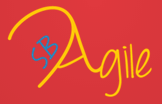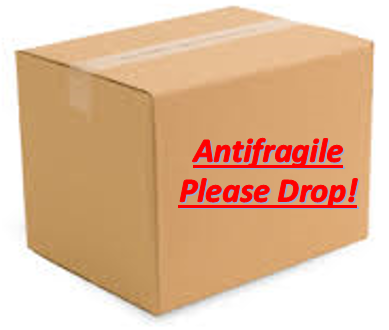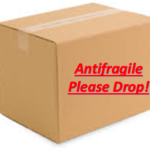Building antifragile relationships is about finding ways for our relationships to gain from disorder, or be more antifragile. What tools and practices can we use to help us thrive from disorder? What mindset do we need to hold to be present with the teams and organizations we are in?
I’m excited to be presenting a session at Santa Barbara Agile titled: “Building Antifragile Relationships and Teams.” The session will be on November 19th! You can signup and find specific details at the Santa Barbara Agile Meetup.

The abstract for the session on Building Antifragile Relationships and Teams outlines what we will be exploring:
What does it mean to build antifragile relationships and teams? Teams and organizations, at least successful ones, are based on relationships that “work.” Often we say we want ‘strong’ or ‘good’ relationships, but is ‘strong’ good enough? We will look at ways you can identify if the foundation of your team relationship is more fragile or more antifragile. Then we will work through some exercises and tools to help you create, or expand on, an antifragile foundation for your team.
Help your team move towards a space where your relationships and therefore teams can thrive. We will consider how to build an alliance with a team and consider potential conflicts. We will also explore a number of common issues contributing to toxic team situations. Antifragile is not an endpoint. Like agile, it is a journey and mindset. The ideas we will explore are not just about “them”, but are about “us” first. We have to start with us. What can WE bring to the table and what can WE do or be. Expect to work individually and with others in this interactive workshop.
Antifragile
There are a number of ideas and concepts that I’ll be weaving together in this session, but we will start by looking at the concept of antifragile. This concept, introduced in the book Antifragile – Things that Gain From Disorder, by Nassim Taleb. The book has many interesting reviews (Forbes), including some with

not so flattering takes (which seem more aimed at the author personally). I believe that anyone reading the book will find it thought-inspiring. I find the core premise — the idea of “antifragile” to be a very valuable concept to consider for organizations, culture, and relationships. There has not been a word to describe the opposite of fragile – so Nassim created one. Try asking people what the opposite of fragile is. You will likely get answers like: ‘strong’, ‘resilient’, ‘solid’, or ‘unbreakable.’ Those, however, are NOT the opposite.
If you consider that something that is fragile will “come apart” or unravel if it is introduced to disturbance, disorder, or shock (consider a package of breakable wine glasses) — you can see why the opposite is not strong. Something that is strong would simply not be broken — it would maintain its shape or position. For something to be antifragile, the opposite of fragile, it has to benefit from change or disorder. We can consider how this might affect organizations, as a way to deal with the increasing complexity and speed of the world. We may consider what this idea means when we look at the values and principles behind agile or lean — how can antifragile inform us in relation a more human centered work environment?
Antifragile Relationships
We are all involved in many relationships throughout our organizations (and lives). How antifragile are your relationships? How many of your relationships actually GAIN from shock or disorder? Are you building antifragile relationships, so they benefit from disorder? Personally, I find that in the relationships I am in, it is a journey and I am continuing to move toward antifragile, although not every day! Like many things, we can’t just say “we are there!” and be done. One concept that can help us move to more antifragile relationships is to improve our awareness and abilities when dealing with Team Toxins. This is just one example of a concept that if we embrace it, we increase our options and capacity to deal with challenges in relationships, as they arise. The option to pretend everything is okay will not lead us to better teams, organizations, or a better world.
I know that sometimes the “R” word, relationship, is avoided in business. We can’t hope to improve how we work together as humans, in pairs, teams, groups, departments, organizations, and across organizations — if we are not even able to talk about relationships!
Many of us are doing things that improve our relationships, teams, and organizations each day. Many of us might also be doing some things that hold them back. What ideas does this bring to mind for you? Where are your relationships today in your team or your organization? I’m curious what thoughts came to mind for you as your read this… please leave a comment or contact me!
[Updated with a tweet and picture from the session.]
Building out a team alliance with @jcalabrese at our last #sbagile meetup pic: pic.twitter.com/uUE7tdtsuK
— Heidi Helfand (@heidihelfand) November 22, 2014










